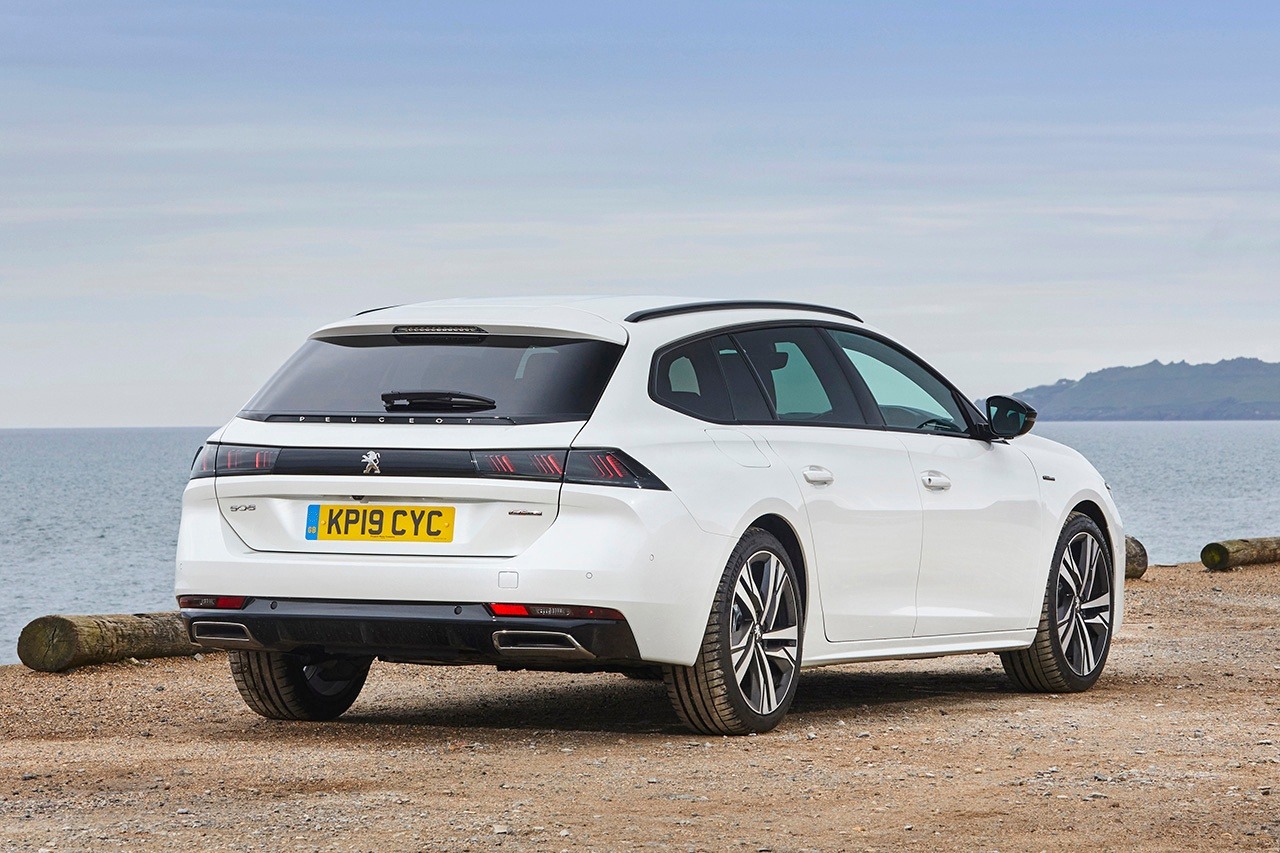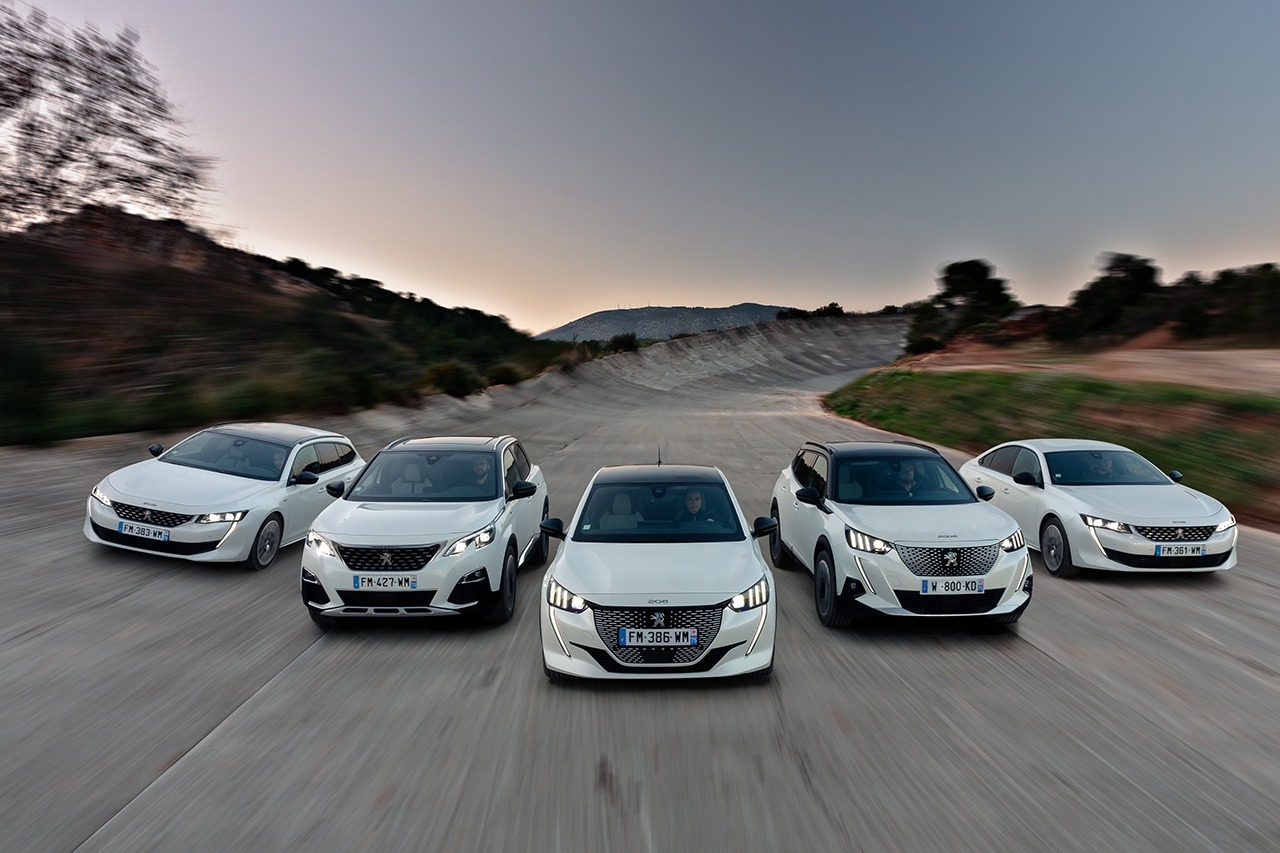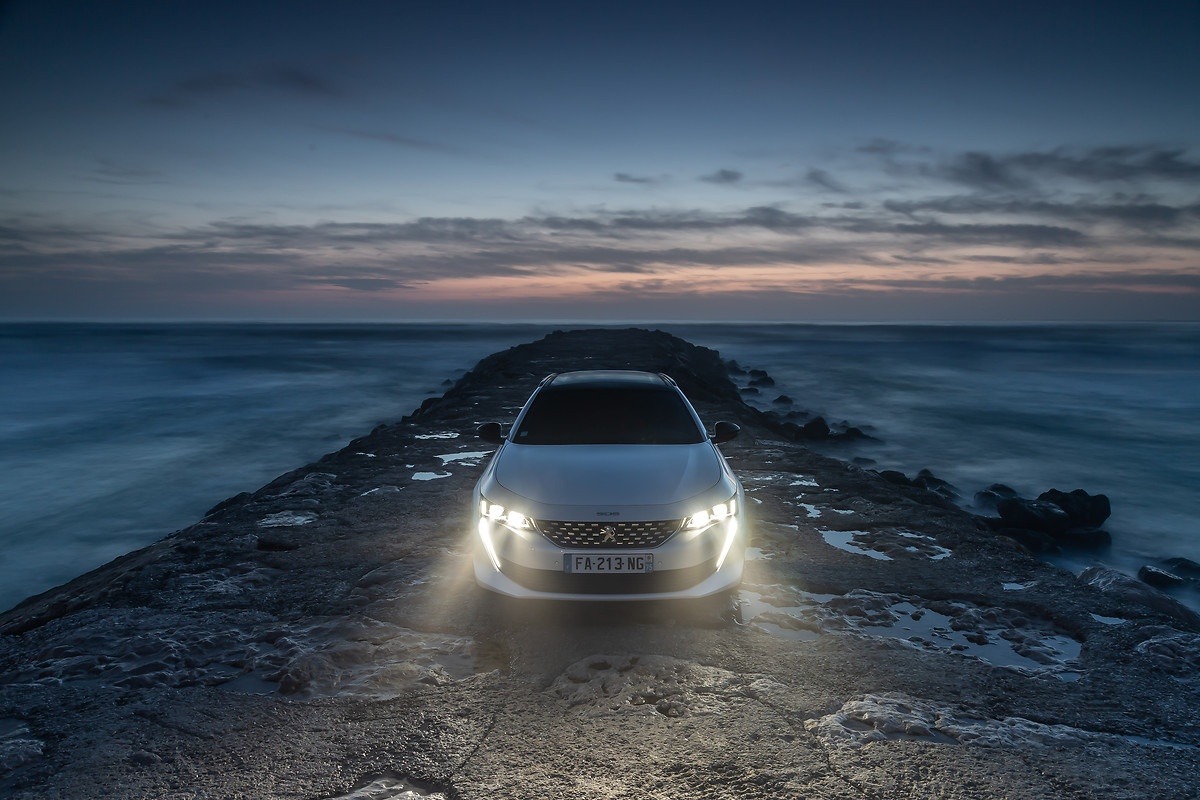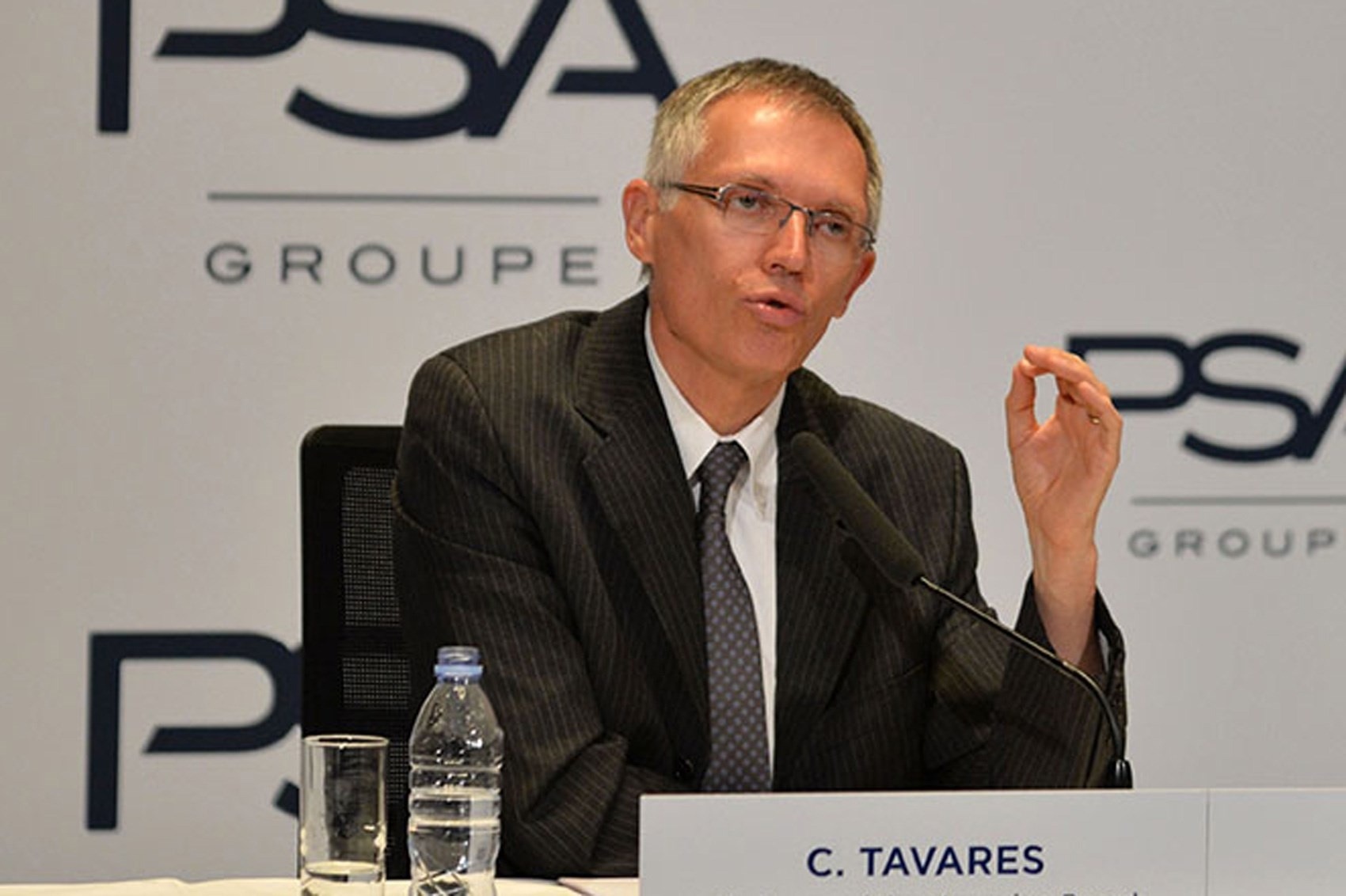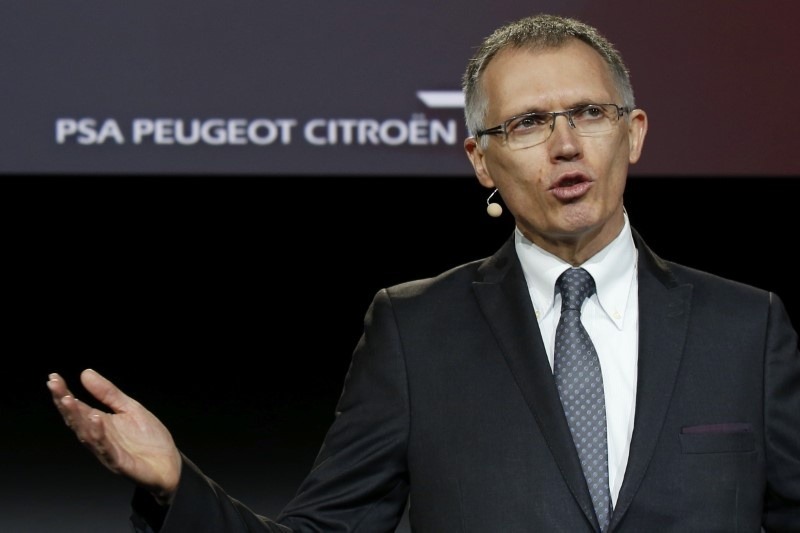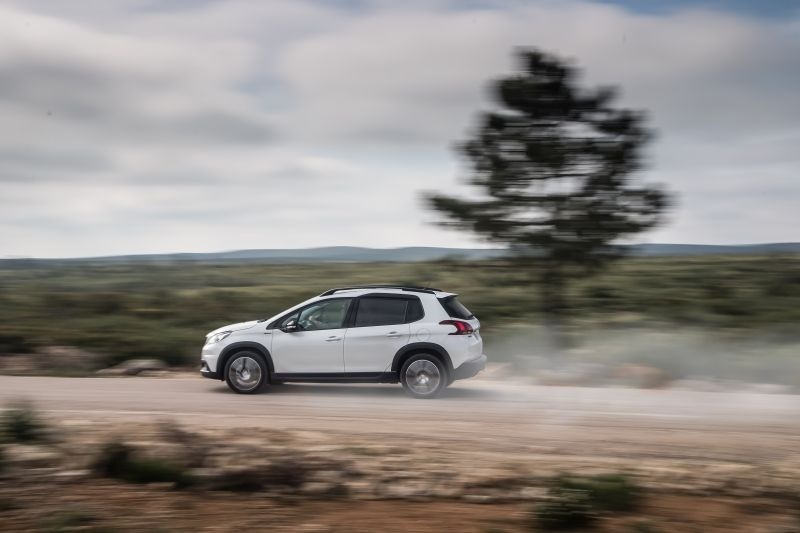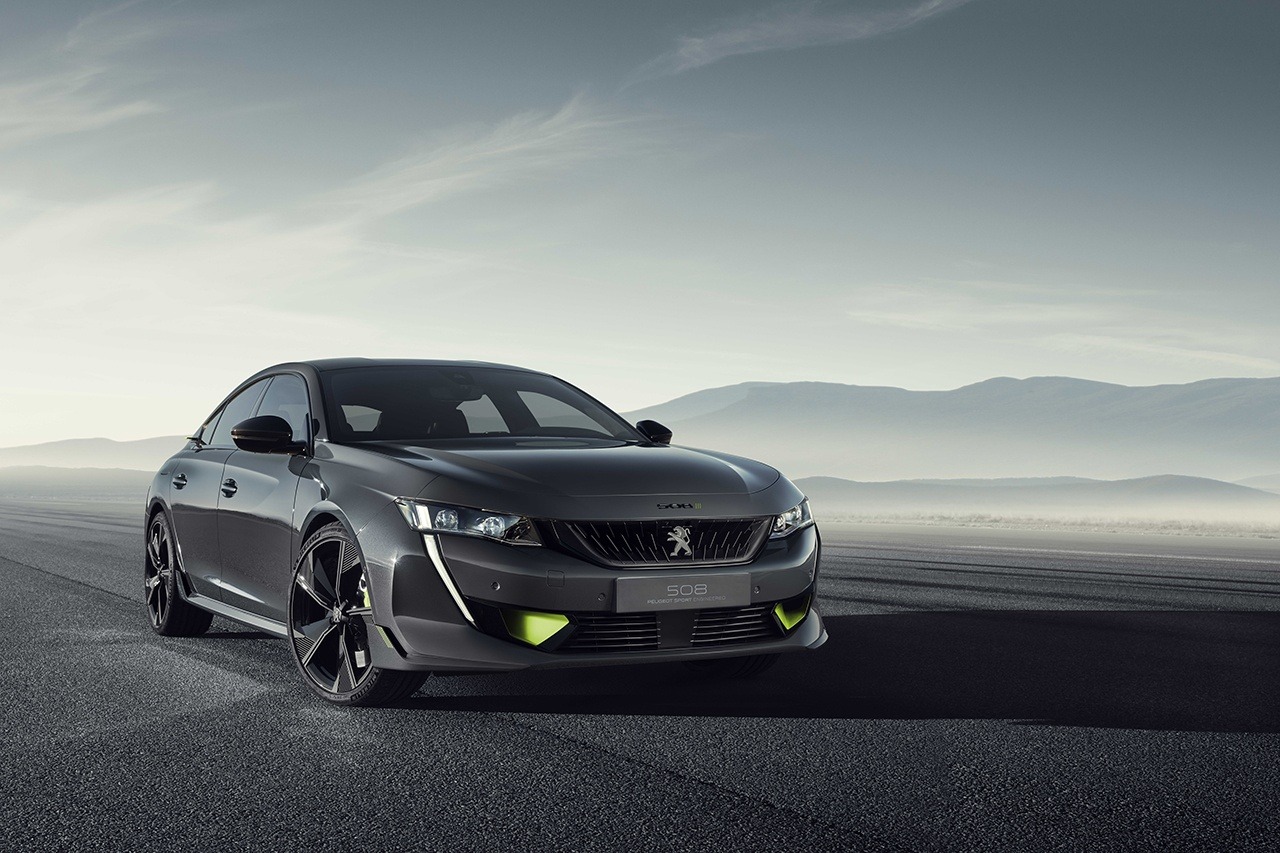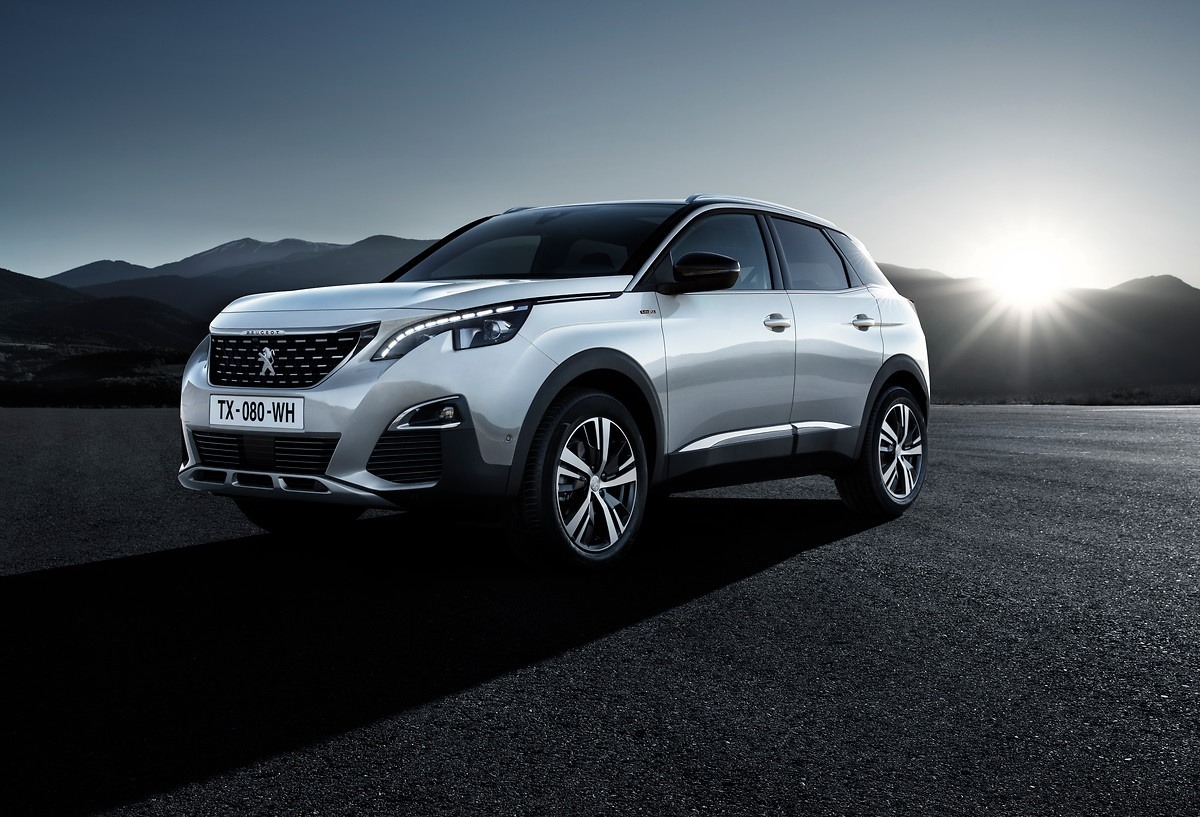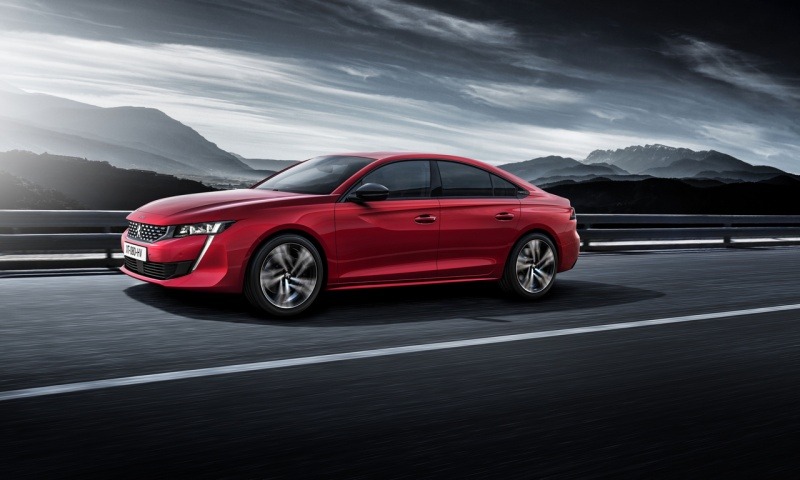Search the Community
Showing results for tags 'peugeot'.
-
From the album: Peugeot E3008
-
From the album: Peugeot E3008
-
From the album: Peugeot E3008
-
From the album: Peugeot E3008
-
From the album: Peugeot E3008
-
From the album: Peugeot E3008
-
From the album: Peugeot E3008
-
Yesterday, Fiat Chrysler Automobiles and Groupe PSA officially merged to become Stellantis, the fourth-largest automaker in the world. But this merge has produced some consequences that need to be addressed. One of those being Peugeot's re-entry back in to the U.S. “We were last speaking about [Peugeot’s U.S. re-entry] a year and a half ago, before Stellantis. We can’t not take into account that in the coming days Peugeot will be part of this new world. I imagine in the coming months due to the new strategy we will have to adapt and reconsider all elements, including this one,” said Peugeot CEO Jean-Philippe Imparato to Automotive News. A key reason for this reconsideration not wanting overlap brands in the U.S. This is a polar opposite to comments made last year by Larry Dominique, CEO of PSA North America. Imparto's focus for Peugeot in the near future is concentrating on its core markets - Europe, the Middle East, Africa, and Latin America. There are also plans to get the brand back on track in China. As for the U.S., Imparto said it was "still on the table" down the road. Source: Automotive News (Subscription Required)
-
Yesterday, Fiat Chrysler Automobiles and Groupe PSA officially merged to become Stellantis, the fourth-largest automaker in the world. But this merge has produced some consequences that need to be addressed. One of those being Peugeot's re-entry back in to the U.S. “We were last speaking about [Peugeot’s U.S. re-entry] a year and a half ago, before Stellantis. We can’t not take into account that in the coming days Peugeot will be part of this new world. I imagine in the coming months due to the new strategy we will have to adapt and reconsider all elements, including this one,” said Peugeot CEO Jean-Philippe Imparato to Automotive News. A key reason for this reconsideration not wanting overlap brands in the U.S. This is a polar opposite to comments made last year by Larry Dominique, CEO of PSA North America. Imparto's focus for Peugeot in the near future is concentrating on its core markets - Europe, the Middle East, Africa, and Latin America. There are also plans to get the brand back on track in China. As for the U.S., Imparto said it was "still on the table" down the road. Source: Automotive News (Subscription Required) View full article
-

Despite COVID-19, PSA Group Still Planning A Return By 2023
William Maley posted an article in Peugeot
It has been some time since we last reported on PSA Group's plan to re-enter the U.S. When we last checked in, Peugeot was chosen as the brand to be entering the U.S. by 2023 and rumors were swirling about a possible merger between PSA Group and FCA. A lot has changed since then as the two automakers begin to finalize plans for a merger, and the COVID-19 pandemic has no end in sight in the U.S. What does that mean for Peugeot's return to the U.S.? "My role is to grow the PSA business in North America, growing our mobility capability and preparing for the launch of Peugeot." said Larry Dominique, CEO of PSA North America to Automotive News. "From our standpoint, we're planning as if [the merger] doesn't exist. We're marching forward as if PSA was going to be there by themselves." Dominique is right now focused on the present with the top priority being building out a dealer network for both U.S. and Canada before the launch. He explained that the company is planning a two-prong approach, having franchised dealers and online retailing. "The future success for OEMs is the reduction of distribution costs while ensuring both retail and OEM margin sustainability. This has to be done through strong pricing power, not volume turnover," he said. Part of this is due to COVID-19 pandemic which has many automakers rethinking how they sell vehicles, something Dominique admits is a big challenge. "All my competitors are going to be focusing on digital, which means we have to step up our game and deliver an even stronger customer experience when we launch Peugeot in North America. We need to get out of an environment where the retailers are dependent upon just F&I and service to pay their bills." Another challenge facing Dominique, what models to sell in the U.S. The market has changed a lot since PSA Group announced its intentions to re-enter the U.S. Consumers now are focused on trucks and crossovers. "I don't have a full-sized truck,. But the C and D segments are what's relevant to us. The C and D segments are high volume and important to North America. That's where we're going to focus initially," To us, this hints at the 3008 and 5008 crossovers being some of the first models to be available. Source: Automotive News (Subscription Required) -
It has been some time since we last reported on PSA Group's plan to re-enter the U.S. When we last checked in, Peugeot was chosen as the brand to be entering the U.S. by 2023 and rumors were swirling about a possible merger between PSA Group and FCA. A lot has changed since then as the two automakers begin to finalize plans for a merger, and the COVID-19 pandemic has no end in sight in the U.S. What does that mean for Peugeot's return to the U.S.? "My role is to grow the PSA business in North America, growing our mobility capability and preparing for the launch of Peugeot." said Larry Dominique, CEO of PSA North America to Automotive News. "From our standpoint, we're planning as if [the merger] doesn't exist. We're marching forward as if PSA was going to be there by themselves." Dominique is right now focused on the present with the top priority being building out a dealer network for both U.S. and Canada before the launch. He explained that the company is planning a two-prong approach, having franchised dealers and online retailing. "The future success for OEMs is the reduction of distribution costs while ensuring both retail and OEM margin sustainability. This has to be done through strong pricing power, not volume turnover," he said. Part of this is due to COVID-19 pandemic which has many automakers rethinking how they sell vehicles, something Dominique admits is a big challenge. "All my competitors are going to be focusing on digital, which means we have to step up our game and deliver an even stronger customer experience when we launch Peugeot in North America. We need to get out of an environment where the retailers are dependent upon just F&I and service to pay their bills." Another challenge facing Dominique, what models to sell in the U.S. The market has changed a lot since PSA Group announced its intentions to re-enter the U.S. Consumers now are focused on trucks and crossovers. "I don't have a full-sized truck,. But the C and D segments are what's relevant to us. The C and D segments are high volume and important to North America. That's where we're going to focus initially," To us, this hints at the 3008 and 5008 crossovers being some of the first models to be available. Source: Automotive News (Subscription Required) View full article
-
In a discussion about their pending merger, Fiat Chrysler revealed that the combined company's future vehicles in the small to mid-size range will be built on two of PSA's platforms. The reasoning behind it is that PSA's platforms are more modern than FCA's which first debuted in 2003. They are also capable of a wider range of propulsion methods like electrification that are harder to incorporate into the aging platform that FCA is using. The smaller of the two platforms, PSA's CMP, launched last year is found under the Peugeot 208, 2008, DS 3 Crossback and the new Opel Corsa. The larger platform is called EMP2 and launched in 2016. It underpins the Peugeot 3008, 5008, 508, DS7 Crossback, Citroen C5 Aircross, and Opel Grandland. Both of these platforms could become the basis for new Jeep, Dodge, and Fiat models. The first possible FCA model to debut on one of these platforms is likely to be a small crossover for Alfa Romeo, due out in 2022. On the other hand, the Ram trucks and larger Jeep models will continue to use technology developed by FCA. The next generation Jeep Grand Cherokee is already well into development and the forthcoming Wagoneer and Grand Wagoneer are set to go into production in early 2021. The primary question mark remains around the larger Chrysler 300, Dodge Charger and Challenger, and Chrysler Pacifica. View full article
-
In a discussion about their pending merger, Fiat Chrysler revealed that the combined company's future vehicles in the small to mid-size range will be built on two of PSA's platforms. The reasoning behind it is that PSA's platforms are more modern than FCA's which first debuted in 2003. They are also capable of a wider range of propulsion methods like electrification that are harder to incorporate into the aging platform that FCA is using. The smaller of the two platforms, PSA's CMP, launched last year is found under the Peugeot 208, 2008, DS 3 Crossback and the new Opel Corsa. The larger platform is called EMP2 and launched in 2016. It underpins the Peugeot 3008, 5008, 508, DS7 Crossback, Citroen C5 Aircross, and Opel Grandland. Both of these platforms could become the basis for new Jeep, Dodge, and Fiat models. The first possible FCA model to debut on one of these platforms is likely to be a small crossover for Alfa Romeo, due out in 2022. On the other hand, the Ram trucks and larger Jeep models will continue to use technology developed by FCA. The next generation Jeep Grand Cherokee is already well into development and the forthcoming Wagoneer and Grand Wagoneer are set to go into production in early 2021. The primary question mark remains around the larger Chrysler 300, Dodge Charger and Challenger, and Chrysler Pacifica.
-
According to a report in the Wall Street Journal, Fiat Chrysler Automobiles and PSA are in merger talks. This after the failed merger negotiations last spring between FCA and Renault. The merger is reportedly an all-share merger of equals with PSA CEO Carlos Tavares at the helm as CEO and FCA Chairman John Elkann retaining his position in the new company. The "talks are fluid" and the paper reported that "no guarantee that any final agreement will be reached". FCA had previously turned down a merger offer from PSA back in March. PSA is still digesting their acquisition of Opel from General Motors. View full article
-
According to a report in the Wall Street Journal, Fiat Chrysler Automobiles and PSA are in merger talks. This after the failed merger negotiations last spring between FCA and Renault. The merger is reportedly an all-share merger of equals with PSA CEO Carlos Tavares at the helm as CEO and FCA Chairman John Elkann retaining his position in the new company. The "talks are fluid" and the paper reported that "no guarantee that any final agreement will be reached". FCA had previously turned down a merger offer from PSA back in March. PSA is still digesting their acquisition of Opel from General Motors.
-
PSA Group is starting to sound a bit desperate for a merger these days. First they bought GM's Opel Unit for $1.54b, later demanding a roughly 50% refund due to issues stemming from extra rosy sales forecasts and emissions regulations trouble. PSA has quickly turned around the Opel unit into a profit center instead of the loss-maker it was under GM control. More recently, Peugeot was seen to be dancing with FCA only to be rebuffed when it came to light that any merger between the two companies would come in the form of PSA stock. Now PSA Group CEO Carlos Tavares says that he would be interested in a merger with Jaguar Land Rover, saying he would be interested in having a more premium brand above their current DS line. Jaguar Land Rover is struggling with sales declines, but parent company Tata has said "There is no truth to the rumor that Tata Motors is looking to divest its stake in JLR". So it is back to the dance floor for PSA without a partner. Lets see who they come up with next. View full article
- 6 replies
-
- jaguar
- jaguar land rover
-
(and 5 more)
Tagged with:
-

Peugeot Interested in Jaguar-Land Rover; Tata says "Not Interested"
Drew Dowdell posted an article in Peugeot
PSA Group is starting to sound a bit desperate for a merger these days. First they bought GM's Opel Unit for $1.54b, later demanding a roughly 50% refund due to issues stemming from extra rosy sales forecasts and emissions regulations trouble. PSA has quickly turned around the Opel unit into a profit center instead of the loss-maker it was under GM control. More recently, Peugeot was seen to be dancing with FCA only to be rebuffed when it came to light that any merger between the two companies would come in the form of PSA stock. Now PSA Group CEO Carlos Tavares says that he would be interested in a merger with Jaguar Land Rover, saying he would be interested in having a more premium brand above their current DS line. Jaguar Land Rover is struggling with sales declines, but parent company Tata has said "There is no truth to the rumor that Tata Motors is looking to divest its stake in JLR". So it is back to the dance floor for PSA without a partner. Lets see who they come up with next.- 6 comments
-
- jaguar
- jaguar land rover
-
(and 5 more)
Tagged with:
-
We previously had reported that Peugeot was planning on returning to the U.S. by 2026. After having been turned down by FCA for an offer of a merger, The Wall Street Journal is reporting that Peugeot is accelerating its plans for a US return to happen in 3 to 4 years, that means as soon as 2022. One advantage they have is their recent acquisition of Opel from General Motors. Through that acquisition, Peugeot gained a number of engineers who have experience designing vehicles for the U.S. market. According to PSA CEO Carlos Tavares, anything Peugeot currently builds is up for consideration to bring to the US market, though it has been hinted that the initial offering will be in the mid-size and compact segments. Peugeot is also looking to disrupt the sales process as well. While they still may use a dealership network, executives appear focused on a new method of vehicle delivery, perhaps using a methodology similar to Carvana where the process is primarily completed online. View full article
-
We previously had reported that Peugeot was planning on returning to the U.S. by 2026. After having been turned down by FCA for an offer of a merger, The Wall Street Journal is reporting that Peugeot is accelerating its plans for a US return to happen in 3 to 4 years, that means as soon as 2022. One advantage they have is their recent acquisition of Opel from General Motors. Through that acquisition, Peugeot gained a number of engineers who have experience designing vehicles for the U.S. market. According to PSA CEO Carlos Tavares, anything Peugeot currently builds is up for consideration to bring to the US market, though it has been hinted that the initial offering will be in the mid-size and compact segments. Peugeot is also looking to disrupt the sales process as well. While they still may use a dealership network, executives appear focused on a new method of vehicle delivery, perhaps using a methodology similar to Carvana where the process is primarily completed online.
-
The reaction Peugeot’s return to the U.S. Market a couple weeks back falls into three categories. OMG! We're getting exciting French cars again Why is another automaker coming to the U.S.? Split between 1 and 2 I should say that I fall into camp three at the moment. Previously, I was in number one when the rumors began to swirl around about PSA Group - parent company of Peugeot, Citroen, DS, Opel, and Vauxhall - making a possible return in late 2014. The dreams about possibly seeing a small number of Citroen and DS vehicles running around the U.S. sparked some joy. Peugeot was nowhere to be seen in my fantasy as they were seen to be somewhat bland in terms of their design. But once I had my dream play through my head, I began to wonder if this could work out for PSA Group. Despite being seen as the holy grail to many outside automakers, the U.S. is very notorious to break in and keep going forward. Consider these quotes from a 2016 report in Automotive News (Subscription Required). So when PSA made their official announcement in 2016, some of my worries began to drift away. PSA would also conduct extensive research into the U.S. marketplace to determine which brand would take the charge. The end goal was to possibly have a brand in the country by 2026. Possibly is the keyword as they made clear that could pass on this idea if various conditions weren't met. Since that announcement, PSA has been making some inroads into this plan, Establishing a North American office and bringing in Larry Dominique (formerly of Nissan and TrueCar) as the head Launching a ride-sharing and car sharing app in various U.S. cities Starting to develop vehicles for the U.S. The most recent announcement of Peugeot as the lead brand surely disappointed some folks as the likes of the C4 Cactus and DS5 would not arriving. But the decision does show the amount of thought and work that has been happening behind the scenes. Still, PSA Group and Peugeot still have a tough hill to climb. Reading through the comments on the article written by Drew, there are two common issues pointed out. One is how Peugeot doesn't have anything unique in their lineup. Two is how Peugeot could be entering a marketplace that is possibly on the verge of a recession. Let's begin with design. Out of all of the brands under the PSA umbrella, Peugeot plays it very much safe in terms of design. While the brand has been taking some risks in the past few years (especially with their interiors) they are no-where near the likes of Citroen. This difference is very apparent in the history of the two brands, Peugeot producing vehicles that were efficient and simple. But some of those design could jump in terms of elegance. Citroen pushing the envelope with their designs that are either praised or hated. DS falls under this umbrella as well. My hunch is that PSA figured that sending either Citroen or DS would be problematic because they might not appeal to consumers, and just sit on lots. The second reason does hold slightly more water. Signs are beginning to appear that the U.S. economy could be heading towards a recession - a key item being pointed at is the drop in new car sales. If Peugeot was to enter at the present time, the consequences could be severe and put them in a difficult spot. But as noted, Peugeot will not be arriving until 2026. That's over six years away and in that time, the economy could be recovering from the recession in question. Time is also the biggest enemy to Peugeot. In six years time, the U.S. marketplace could be in a completely different state than where it stands now. Crossovers and SUVs dominate the sales charts at the moment, but it might be electric vehicles that become the dominant choice. There are also various regulations that may come into fruition, along with the possibility of new tariffs on vehicles built in Europe. There’s also the issue of trying to stand out in the U.S. marketplace. Consider this for a moment; there are over forty automakers selling just under 300 or so nameplates. With the prospect of more automakers from China expected to arrive in the next few years, Peugeot might be entering a crowded field. Some of their current models have the looks, but can it combat strong competition that has a long history and reputation in the country? One item is very clear, PSA Group isn't stupid. They're taking their time and doing a lot of behind the scenes work before introducing their first models in the U.S. Whether or not this proves to the big success or the white flag being raised remains to be seen.
- 4 comments
-
- afterthoughts
- opinion
-
(and 2 more)
Tagged with:
-
The reaction Peugeot’s return to the U.S. Market a couple weeks back falls into three categories. OMG! We're getting exciting French cars again Why is another automaker coming to the U.S.? Split between 1 and 2 I should say that I fall into camp three at the moment. Previously, I was in number one when the rumors began to swirl around about PSA Group - parent company of Peugeot, Citroen, DS, Opel, and Vauxhall - making a possible return in late 2014. The dreams about possibly seeing a small number of Citroen and DS vehicles running around the U.S. sparked some joy. Peugeot was nowhere to be seen in my fantasy as they were seen to be somewhat bland in terms of their design. But once I had my dream play through my head, I began to wonder if this could work out for PSA Group. Despite being seen as the holy grail to many outside automakers, the U.S. is very notorious to break in and keep going forward. Consider these quotes from a 2016 report in Automotive News (Subscription Required). So when PSA made their official announcement in 2016, some of my worries began to drift away. PSA would also conduct extensive research into the U.S. marketplace to determine which brand would take the charge. The end goal was to possibly have a brand in the country by 2026. Possibly is the keyword as they made clear that could pass on this idea if various conditions weren't met. Since that announcement, PSA has been making some inroads into this plan, Establishing a North American office and bringing in Larry Dominique (formerly of Nissan and TrueCar) as the head Launching a ride-sharing and car sharing app in various U.S. cities Starting to develop vehicles for the U.S. The most recent announcement of Peugeot as the lead brand surely disappointed some folks as the likes of the C4 Cactus and DS5 would not arriving. But the decision does show the amount of thought and work that has been happening behind the scenes. Still, PSA Group and Peugeot still have a tough hill to climb. Reading through the comments on the article written by Drew, there are two common issues pointed out. One is how Peugeot doesn't have anything unique in their lineup. Two is how Peugeot could be entering a marketplace that is possibly on the verge of a recession. Let's begin with design. Out of all of the brands under the PSA umbrella, Peugeot plays it very much safe in terms of design. While the brand has been taking some risks in the past few years (especially with their interiors) they are no-where near the likes of Citroen. This difference is very apparent in the history of the two brands, Peugeot producing vehicles that were efficient and simple. But some of those design could jump in terms of elegance. Citroen pushing the envelope with their designs that are either praised or hated. DS falls under this umbrella as well. My hunch is that PSA figured that sending either Citroen or DS would be problematic because they might not appeal to consumers, and just sit on lots. The second reason does hold slightly more water. Signs are beginning to appear that the U.S. economy could be heading towards a recession - a key item being pointed at is the drop in new car sales. If Peugeot was to enter at the present time, the consequences could be severe and put them in a difficult spot. But as noted, Peugeot will not be arriving until 2026. That's over six years away and in that time, the economy could be recovering from the recession in question. Time is also the biggest enemy to Peugeot. In six years time, the U.S. marketplace could be in a completely different state than where it stands now. Crossovers and SUVs dominate the sales charts at the moment, but it might be electric vehicles that become the dominant choice. There are also various regulations that may come into fruition, along with the possibility of new tariffs on vehicles built in Europe. There’s also the issue of trying to stand out in the U.S. marketplace. Consider this for a moment; there are over forty automakers selling just under 300 or so nameplates. With the prospect of more automakers from China expected to arrive in the next few years, Peugeot might be entering a crowded field. Some of their current models have the looks, but can it combat strong competition that has a long history and reputation in the country? One item is very clear, PSA Group isn't stupid. They're taking their time and doing a lot of behind the scenes work before introducing their first models in the U.S. Whether or not this proves to the big success or the white flag being raised remains to be seen. View full article
- 4 replies
-
- 1
-

-
- afterthoughts
- opinion
-
(and 2 more)
Tagged with:
-
PSA has been mulling a return to the United states since at least 2014. We reported in March of 2016 that DS was the most likely brand to mark the return of the French automaker to these shores. Now, PSA has made the announcement that Peugeot has been the brand selected, beating out Citroën, DS, and the recently acquired Opel brand. Peugeot left the U.S. market in 1991 after selling only 4,292 vehicles the year prior. PSA will start in 15 U.S. states and 4 Canadian provinces that have a higher rate of import vehicle sales. The vehicles would be sourced from both Europe and China. No firm time frame has been announced for the arrival of Peugeot in the U.S., the company only states that it wants to have its vehicles here by 2026. View full article
-
PSA has been mulling a return to the United states since at least 2014. We reported in March of 2016 that DS was the most likely brand to mark the return of the French automaker to these shores. Now, PSA has made the announcement that Peugeot has been the brand selected, beating out Citroën, DS, and the recently acquired Opel brand. Peugeot left the U.S. market in 1991 after selling only 4,292 vehicles the year prior. PSA will start in 15 U.S. states and 4 Canadian provinces that have a higher rate of import vehicle sales. The vehicles would be sourced from both Europe and China. No firm time frame has been announced for the arrival of Peugeot in the U.S., the company only states that it wants to have its vehicles here by 2026.
-
Ever since PSA Group announced that it would be making a return the U.S. as part of a 10-year plan, there has been a large amount of speculation as to which brand would be sold. Would it be Citroen, DS, Peugeot, or the recently acquired Opel/Vauxhall? “We’ve chosen a brand, but it’s too early to talk about it,” said Larry Dominique, president and CEO of PSA North America to Car and Driver. PSA Group is still in the first phase of its plan with the Free2Move mobility aggregation platform (shows various ways of getting around such as bikes and electric vehicles) in Seattle. Somewhat worrying is that the company has only “activated its marketing” in Seattle recently according to Dominique - Free2Move launched back in October. Out of all of the brands under PSA Group, Car and Driver says there is a good chance that Opel could be the brand coming to the U.S. They point out a comment made by PSA Group CEO Carlos Tavares saying after purchasing Opel/Vauxhall is that Opel engineers can “ensure the future products for this market will be fully U.S. compliant,” in terms of regulations and taste. But there is a possible complication to PSA's plans. Yesterday, President Donald Trump's tariffs on imported steel and aluminum went into effect. There is also talk about a possibly matching up the tariff on imported vehicles - currently, the U.S. imposes a 2.5 percent tariff on imported European vehicles. Earlier this month, Tavares told Automotive News that he is watching the situation closely and that if a new vehicle tariff does come, it will make the company rethink their plans. “If the overall framework of tariffs change, it may have an impact on our strategy. That’s clear, because if we don’t have a profitable business plan, then we don’t go,” said Tavares. Dominique is a little bit more hopeful. Speaking at the J.D. Power Automotive Summit this week, Dominique said he doesn't believe an increase in the tariff will happen and expressed confidence that the various trade issues could be worked out. Source: Car and Driver, Automotive News (Subscription Required), 2 View full article
-

A Brand Has Been Chosen By PSA Group For Their U.S. Return
William Maley posted an article in Automotive Industry
Ever since PSA Group announced that it would be making a return the U.S. as part of a 10-year plan, there has been a large amount of speculation as to which brand would be sold. Would it be Citroen, DS, Peugeot, or the recently acquired Opel/Vauxhall? “We’ve chosen a brand, but it’s too early to talk about it,” said Larry Dominique, president and CEO of PSA North America to Car and Driver. PSA Group is still in the first phase of its plan with the Free2Move mobility aggregation platform (shows various ways of getting around such as bikes and electric vehicles) in Seattle. Somewhat worrying is that the company has only “activated its marketing” in Seattle recently according to Dominique - Free2Move launched back in October. Out of all of the brands under PSA Group, Car and Driver says there is a good chance that Opel could be the brand coming to the U.S. They point out a comment made by PSA Group CEO Carlos Tavares saying after purchasing Opel/Vauxhall is that Opel engineers can “ensure the future products for this market will be fully U.S. compliant,” in terms of regulations and taste. But there is a possible complication to PSA's plans. Yesterday, President Donald Trump's tariffs on imported steel and aluminum went into effect. There is also talk about a possibly matching up the tariff on imported vehicles - currently, the U.S. imposes a 2.5 percent tariff on imported European vehicles. Earlier this month, Tavares told Automotive News that he is watching the situation closely and that if a new vehicle tariff does come, it will make the company rethink their plans. “If the overall framework of tariffs change, it may have an impact on our strategy. That’s clear, because if we don’t have a profitable business plan, then we don’t go,” said Tavares. Dominique is a little bit more hopeful. Speaking at the J.D. Power Automotive Summit this week, Dominique said he doesn't believe an increase in the tariff will happen and expressed confidence that the various trade issues could be worked out. Source: Car and Driver, Automotive News (Subscription Required), 2










